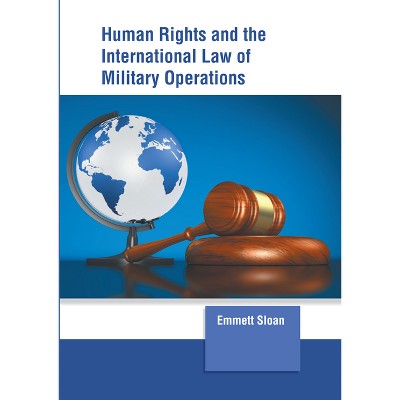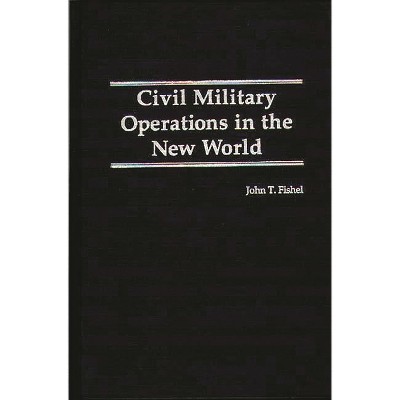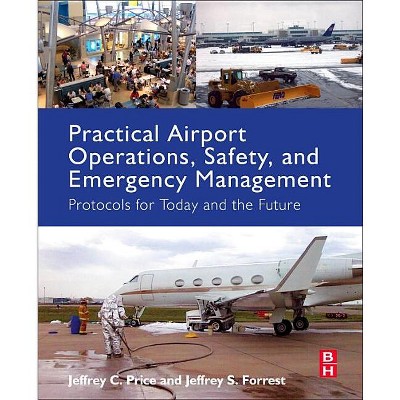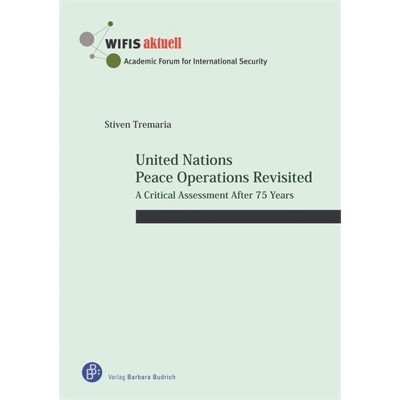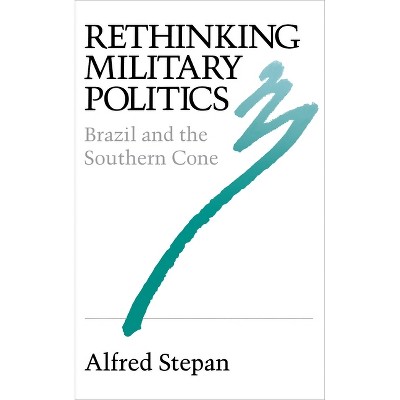Military Cultures in Peace and Stability Operations - by Chiara Ruffa (Hardcover)

About this item
Highlights
- As of September 2017, the United Nations alone deployed 110,000 uniformed personnel from 122 countries in fifteen peacekeeping operations worldwide.
- About the Author: Chiara Ruffa is Senior Lecturer in the Department of Security, Strategy, and Leadership at the Swedish Defense University in Stockholm.
- 204 Pages
- Political Science, Security (National & International)
Description
About the Book
Chiara Ruffa argues that civil-military relations and societal beliefs about the use of force shape the military culture of an army in its home country and has an impact on soldiers' behavior overseas and their ability to keep the peace.Book Synopsis
As of September 2017, the United Nations alone deployed 110,000 uniformed personnel from 122 countries in fifteen peacekeeping operations worldwide. Soldiers in these missions are important actors who not only have considerable responsibility for implementing peace and stability operations but also have a concomitant influence on their goals and impact. Yet we know surprisingly little about the factors that prompt soldiers' behavior. Despite being deployed on the same mission under similar conditions, various national contingents display significant, systematic differences in their actions on the ground.
In Military Cultures in Peace and Stability Operations, Chiara Ruffa challenges the widely held assumption that military contingents, regardless of their origins, implement mandates in a similar manner. She argues instead that military culture--the set of attitudes, values, and beliefs instilled into an army and transmitted across generations of those in uniform --influences how soldiers behave at the tactical level. When soldiers are abroad, they are usually deployed as units, and when a military unit deploys, its military culture goes with it. By investigating where military culture comes from, Ruffa demonstrates why military units conduct themselves the way they do.
Between 2007 and 2014, Ruffa was embedded in French and Italian units deployed under comparable circumstances in two different kinds of peace and stability operations: the United Nations Interim Force in Lebanon and the NATO mission in Afghanistan. Based on hundreds of interviews, she finds that while French units prioritized patrolling and the display of high levels of protection and force--such as body armor and weaponry--Italian units placed greater emphasis on delivering humanitarian aid. She concludes that civil-military relations and societal beliefs about the use of force in the units' home country have an impact on the military culture overseas, soldiers' perceptions and behavior, and, ultimately, consequences for their ability to keep the peace.
Review Quotes
"Military Cultures in Peace and Stability Operations provides the most in-depth research ever conducted on peacekeeping forces and a pioneering analysis of how military culture dynamically influences military behavior and effectiveness. Anyone interested in the connection between military sociology and security studies should read this book."-- "Yagil Levy, The Open University of Israel"
"[A] well-written and engaging book...The text is highly readable and very interesting. The breadth of material collated, the effort to attain rigor, and the depth of analysis make this book a very important contribution to the field. This is a timely piece of work, as others are waking to the need to explain why and how national security forces operate differently in peace, stability, and conflict situations in an era of the 'protection of civilians' and a return to robust peacekeeping."-- "H-Diplo"
"Arguing that national military cultures influence the ways in which military units in peace operations behave, Chiara Ruffa has developed an original set of theoretical concepts that illuminate the question of peace operations effectiveness. Military Cultures in Peace and Stability Operations is a landmark book."-- "Roy Licklider, Rutgers University-New Brunswick"
"Blending sociological analysis, ethnographic data, and an original methodology, Chiara Ruffa produces a persuasive argument about the impact of domestic factors on military culture and how these factors in turn shape the space in which the military operates in peacekeeping missions."-- "Christopher Dandeker, King's College London"
About the Author
Chiara Ruffa is Senior Lecturer in the Department of Security, Strategy, and Leadership at the Swedish Defense University in Stockholm.





